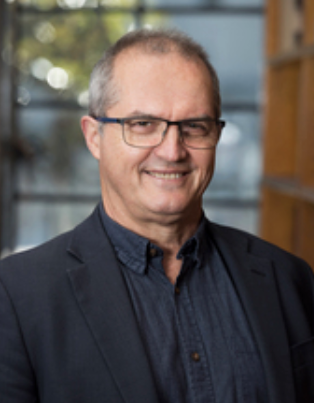 George Orwell and the BBC: Literature, Empire and Propaganda
George Orwell and the BBC: Literature, Empire and Propaganda
15 May - 15 June 2023
Biography
Peter Marks is Emeritus Professor of English at the University of Sydney, where he taught for 25 years. He previously taught at the University of Hull and completed his PhD at the University of Edinburgh. Professor Marks is particularly interested in the work of George Orwell; in relationships between literature and cinema, and between literature and politics; in literary periodical culture; in the essay form; in utopias, and in surveillance, particularly as depicted in literature and cinema. Along with numerous articles and book chapters on these and other topics, he has written four scholarly monographs: on Monty Python’s Terry Gilliam, in Manchester University Press’s British Filmmakers series (2009); George Orwell the Essayist: Literature, Politics and the Periodical Culture (2011); Imagining Surveillance: Eutopian and Dystopian Literature and Film (2015); British Literature of the 1990s: Endings and Beginnings (2018). He is Co-editor of the Palgrave Handbook of Utopian and Dystopian Literatures (2022), which includes over 50 chapters from scholars from five continents. Professor Marks is currently working on a 3-year Australian Research Council Discovery Project titled ‘The International Orwell: Case Studies from Eastasia, Oceania and Eurasia’. Forthcoming research outputs include chapters on the modern essay form for the Cambridge History of the English Essay and on George Orwell’s essays in the Oxford Handbook of George Orwell. He has been a Research Fellow at the universities of Edinburgh, Cambridge and King’s College, London. He is a Life Member of Clare Hall, Cambridge.
Research Summary
The project focuses on Orwell’s multi-faceted engagement with the BBC, whether as critic, employee, or as outside contributor. While the 2017 statue to Orwell outside the BBC’s New Broadcasting House suggests a beneficial relationship, Orwell infamously described his war-time employment at the BBC Eastern Service (1941-43) as “two wasted years”. The project proposes that his period working for the Eastern Service was far more consequential. Orwell would prove a cultural innovator, a deft political analyst, and an astute educator. He wrote and presented regular war newsletters broadcast in English and a half-dozen Asian languages. He acknowledged that these balanced uncomfortably on the edge of propaganda, but they presented an important pro-Allied case in an era of anti-imperialist sentiment. A series of educational programmes Orwell produced on non-literary topics meant primarily for Indian university students featured leading social and political thinkers such as V. Gordon Childe, J.D. Bernal and Joseph Needham. It has been characterised as prototype of The Open University. Orwell also helped create and front an on-air literary magazine, “Voice”, whose participants included T.S. Eliot, Mulk Raj Anand and E.M. Forster. After the war, Orwell would adapt his breakthrough text, Animal Farm (1945), for the Third Programme, reworking the novella for radio and introducing new thematic and aesthetic elements that recalibrate our understanding of that classic. Aspects of his time at the BBC would find their way into Nineteen Eighty-Four (1949). To date, Orwell’s sustained and sometimes surprising connections to the BBC have not received much scholarly attention. This project brings together the expertise of an Orwell scholar, Peter Marks, Professor of English at the University of Sydney, and Simon Potter, the leading BBC historian and Professor of History at the University of Bristol, to examine Orwell’s sustained and sometimes surprising BBC associations in-depth for the first time.
Professor Marks will be hosted by Professor Simon Potter, History Department.
Planned Lectures include: